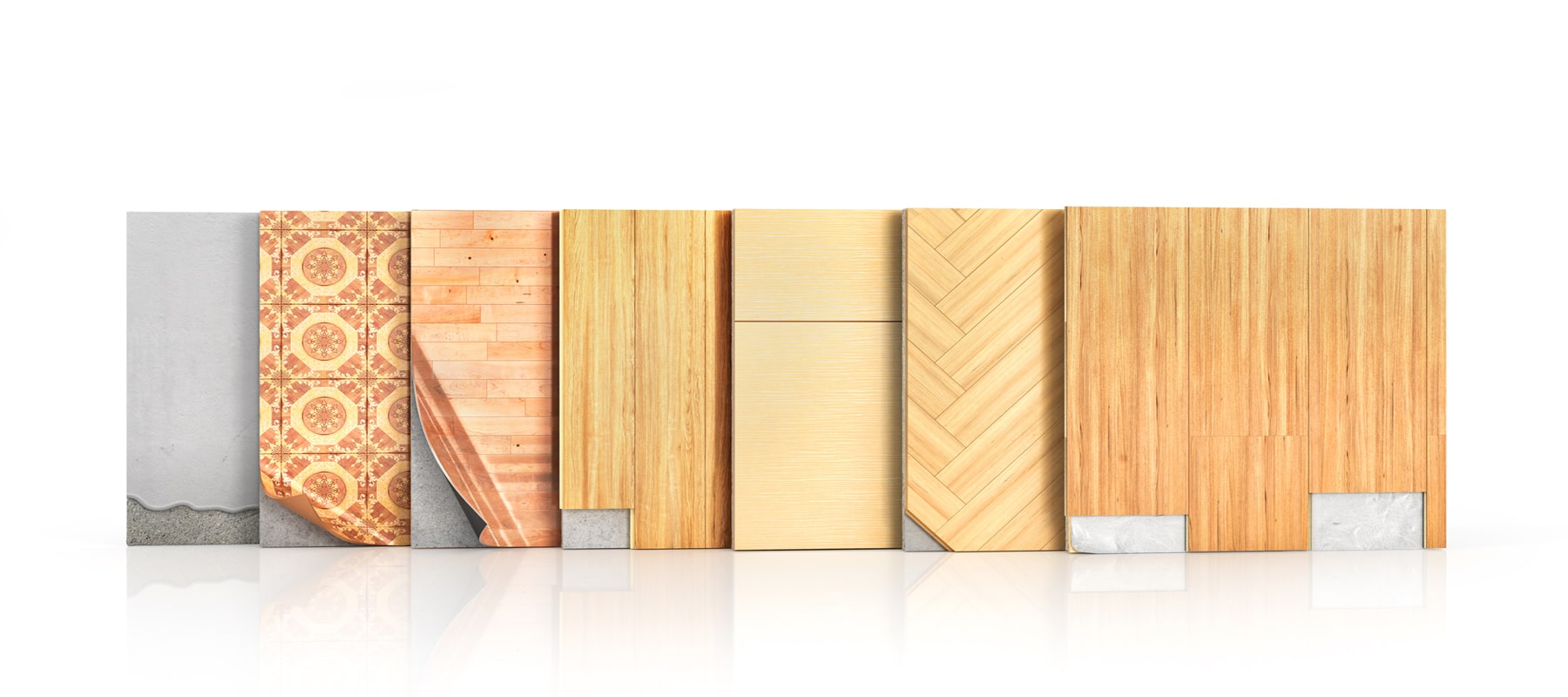How Much Does Columbia Hardwood Flooring Cost?
Last Updated: January 14, 2022
On This Page
Columbia Flooring is known for its fine selection of American hardwoods. The company sells a wide variety of unique and handcrafted hardwood floors designed to match any style of decor, from traditional to contemporary.
About Columbia Hardwood Flooring #
Columbia sells hardwood flooring in a variety of species, including hickory/pecan, maple, ash, oak, walnut, and American cherry. Hickory/pecan is the hardest, most durable surface while cherry is the softest. The company recommends choosing harder woods for high-traffic areas.
Columbia offers a variety of plank widths to match your style preference: 2 1/4, 3, 3 1/4, 4 and 5-inch styles. They offer matte, satin or semi-gloss finishes and several molding and edging options.
Columbia offers both solid wood and engineered wood flooring. Before you begin shopping for Columbia hardwood flooring, it is important to understand the differences between the two. This will likely impact your final decision.
- Solid wood floors can only be installed on plywood, oriented strand board (OSB) or wood subfloors. They can only be nailed or stapled, not glued. They're not suitable for basements or other moisture-prone areas.
- Engineered floors can be installed on plywood, OSB or concrete. They can be glued down and are suitable for basements. They tend to be less expensive but may not hold up as long.
All Columbia flooring comes with a 15, 25, or 50-year warranty, but there are limitations. Be sure to request the warranty details in writing before committing to a purchase.
Columbia Hardwood Flooring Average Costs #
As with any hardwood flooring, it is difficult to estimate the total project cost of installing Columbia floors. It depends on many variables, the type of wood you select, the size of your rooms and optional features like moldings. Generally, expect to pay $5 to $8 per square foot for materials.
In addition, budget around $3 to $5 per square foot for installation and about $2 per square foot for removal and haul away of your old flooring. If you're opting for solid wood and your subfloor is concrete, you'll also need to add a plywood subfloor to create a moisture barrier, which will add to the total purchase price.
Price is an important consideration, but you shouldn't choose a flooring dealer on price alone. Make sure the company has a good track record. Check with the Better Business Bureau and other consumer organizations for information about the company's history. Keep in mind, too, that proper installation is crucial to preserving the lifespan of your floors.
